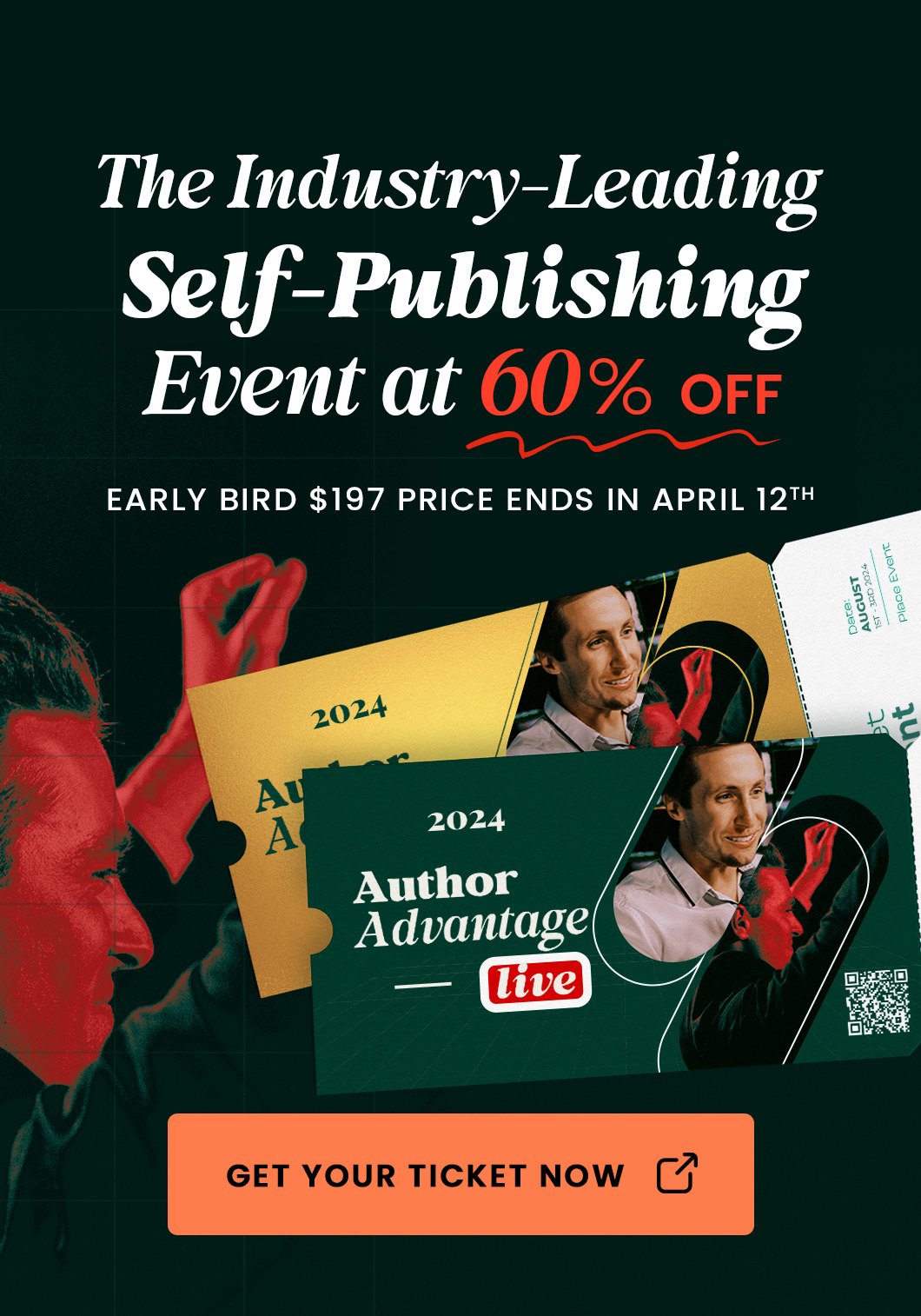There is often a lot of confusion when it comes an autobiography vs memoir. While both are true stories about an individual, they share different story arcs and structures.
If you want to write a story about your life, it's important to understand the difference between memoir and autobiography, which is what we will delve into today. After you read our article on autobiography vs memoir, you'll be able to write your life story with clarity and confidence.
Maybe your life story is unique. You want to share it and leave a lasting legacy behind. Well, it’s time to start the process. It’s time to write your story.
Before sitting down to write, it’s important to articulate to yourself what you specifically want to share and why. Just as writing a fiction book demands planning and deciding exactly where to start and what theme to write about, so does writing your life story.
Whatever your story is, it will likely fall under the category of memoir or autobiography.
The most important choice to make prior to writing your opening sentence is deciding which genre (in the giant list of book genres) you are going to share your story through.
It’s crucial to choose the correct genre in which to tell your story. Autobiographies vs memoirs each have different purposes.
Using an autobiography when you want to communicate your memoir is similar to filming a documentary when you want to film a drama.
Documentaries usually cover many details of a specific time period and are told through a linear fashion. They start at a single point in time and work their way to the end of a time period or to the present day.
Dramas focus on a theme and use specific aspects of a person’s life to articulate and highlight this theme.
Autobiographies vs memoirs are much the same.
This autobiography vs memoir guide will cover:
Autobiography vs memoir: the difference explained
While both genres are personal stories, the difference between memoir and autobiography is distinct.
According to Merriam-Webster, a memoir is, “A narrative composed from personal experience” and an autobiography is, “The biography of a person narrated by that person, a usually written account of a person's life in their own words.”
In the publishing world, a memoir is a book about you that is focused on the reader. In other words, it’s pieces of your life story written with the intention of communicating a specific message to a specific audience.
An autobiography is your life story from birth to present day, including all major events, without too much thought for theme.
The purpose of an autobiography is simply to communicate your life story.
The purpose of a memoir is to communicate a theme, and use stories from your life to do so.
This is the main difference between memoir and autobiography.
Both memoirs and autobiographies should be written with the focus on the reader, however. Writing succeeds because of readers. Whether you’re covering your life from birth to now, or sharing specific stories, keep the reader at the forefront of your mind at all times.
The more you think “reader first” the better your writing will be, regardless of whether you are writing an autobiography vs memoir.
When should I write an autobiography vs memoir?

Celebrities and well-known figures often communicate their life stories through autobiographies, while lesser known individuals communicate a theme through specific stories from their lives.
The public wants to know the details of celebrities’ lives and is willing and eager to read through all the details of their growing up years, young adult successes and failures, and all the way to the present day.
Individuals with less of a public presence who still have valuable stories, information, or an important theme to share, may want to do so through memoirs. This way they can still communicate their message, but use life stories that directly apply to this message to do so.
Learning how to write a memoir allows you to use anecdotes from your life to communicate your theme. Remember, if you aren’t a household name, readers are unlikely to be interested in your stories if they don’t provide some type of value.
Always think reader-first with these questions:
- Is your theme focused on helping the reader?
- What stories contribute to the power of your theme?
- What stories distract from your theme and shift the focus to you?
- Will your reader walk away feeling empowered or inspired?
When writing an autobiography, it’s still important to think of the reader first. But readers are more likely to expect stories that focus on your life and the interesting things you’ve done in an autobiography vs memoir.
If you are a celebrity or household name, writing your autobiography is likely the way to go. Otherwise, you should use creative nonfiction writing skills to make your memoir as interesting and impactful as possible.

Two things to remember when writing your life story
Whether you are writing an autobiography vs memoir, here are two important things to consider:
1. Portray the basic essence of life events
While autobiographies and memoirs are about your life and your interactions, achievements, goals, failures, etc., it’s impossible to remember every word of dialogue you and others have spoken. Readers understand that exact wording has been written to the best of your memory, but is not exact.
Be careful to write in a way that reflects the attitudes and intentions of the dialogue in that moment, however many years ago it took place, but rest assured the dialogue in memoirs and autobiographies cannot be completely accurate.
Sharing your story with the world is a bold step. It’s brave to think through your life and write it all down for hundreds (if not millions) to read.
As you plunge into your story, whether it be autobiography vs memoir, writing, editing, and eventually self-publishing it will take time. Don’t get discouraged if you need to rearrange parts, chop large portions, or add stories when you think you are finished.
Writing your story takes time. It’s your life, after all! Just make sure you capture the basic essence of your life events in an authentic manner.
2. Change names of people and locations
While I just said to be authentic, it's also important to have some protections in place.
Whether you write an autobiography vs memoir, protect yourself and others by changing names, locations, and any other detail as you see fit. You can make a simple note at the front of your book explaining that some details have been changed to protect individuals. The last thing you want is to be accused of libel or slander the week your book comes out.
As you work towards your book launch, enjoy the process. Writing your story is something many dream of, few start, and even less complete. You didn’t just have the dream, you saw it through to its completion.
You took a big step. Whether you chose to embark on an autobiography vs memoir, you are writing your story and putting it out into the world. Your legacy will have the possibility of impacting countless individuals around the world for years to come – and that's extremely exciting!
If you're still not certain on the difference between an autobiography vs memoir (or if what you are writing is an autobiography vs memoir) let's take a look at some examples of each.
Examples of memoirs
If you plan to write your memoir, reading other successful memoirs is a great place to start.
Here are some examples to get you started:
- On Writing: A Memoir of the Craft, by Stephen King
- The Glass Castle, by Jeannette Walls
- Writing For the Soul, by Jerry B. Jenkins
- All Over but the Shoutin’, by Rick Bragg
- Running for My Life, by Lopez Lomong
As you read, focus on what the theme is, what stories the author uses to illustrate this theme, and how the story isn’t focused just on the author, but on you, the reader.
Again, think reader first.
It may be helpful to take notes so that when it’s time to write your own memoir, you have examples to refer back to as needed. This will help you when you feel stuck or unsure of which stories to use.
You can also reference our memoir outline to help you in your writing process.
Examples of autobiographies
If, on the other hand, you decide to write your autobiography vs memoir, you’ll want to brush up on autobiographies and biographies instead.
Whether you pick up an autobiography or a biography, the same lessons can be learned:
- Narrative of the Life of Frederick Douglass, an American Slave, by Frederick Douglass
- Autobiography of Mark Twain, Samuel Clemmons
- Let Us Now Praise Famous Men, by James Agee
- Churchill: A Life, by Martin Gilbert
As you write your autobiography, remember that although it is about you, you should still think reader first. Write in a way that readers will be able to easily understand and follow. Starting at birth and moving forward chronologically will likely work well when writing an autobiography vs memoir.
Share your story with the world
Now that you know the difference between an autobiography vs memoir, it’s time to start the writing process.
Regardless of which you decide to write, take some time to think back over your life, years or weeks that affected you in a particularly positive or negative way, people who influenced you, the themes you see tracing through your story, and dreams or goals you worked for.
Once you have the big moments at the forefront of your mind you can start planning your creative autobiography or memoir ideas. If you need more inspiration on how to share your story, you can use our nonfiction book outline below.

